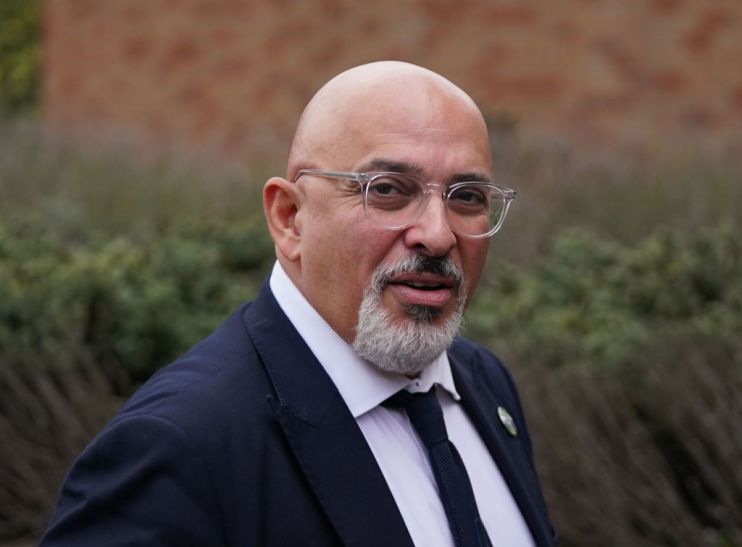Whoever leads the No11 regime must learn spending will only fuel inflation

The year ends with a two. We have a Prime Minister who reset Britain’s relationship with Europe and has suddenly appointed an inexperienced Chancellor. The new regime in Downing Street now promises tax cuts in the face of high inflation.
Am I mad, in a coma, or has the Tory Party travelled back in time?
One could forgive Boris Johnson for feeling like he had just been hit by a speeding car. His Health Secretary and Chancellor resigned in one night, followed by a day of raw politics as dozens of MPs on the payroll quit and his top team turned against him. For a moment, however, it is worth dwelling on Rishi Sunak’s resignation, which emphasised policy disagreements. In a last gasp attempt at survival, Johnson attempted to use this divide to negate the fury from Sajid Javid’s own letter.
After Sunak’s resignation, Johnson moved swiftly to install Nadhim Zahawi, whose genuine success as vaccines minister was not replicated during his time at the Department for Education. Both Johnson and Zahawi’s camps had a busy morning yesterday, before the full scale of the fallout became apparent, and made it known the new regime in No11 would mark a break with even Sunak’s diffident attempts to restore order to the public finances. The message is clear: now is the time to slash taxes and leave fiscal responsibility for later.
It cannot be overstated how counterproductive such a strategy this would be.
Britain is in the grip of an inflationary crisis, with prices now rising at a pace genuinely unimaginable before the pandemic. There are, of course, many supply-side reasons for this, not least the legacy of domestic lockdowns and social distancing, China’s continued adherence to draconian Zero Covid policies, and the further disruption caused by the war in Ukraine. But as I and other inflation doves discovered last year, just because you can explain away inflation, doesn’t actually make it go away.
Fundamentally inflation is caused by too much money chasing too few goods. Does the government have a strategy to successfully increase the supply of key goods before more Chinese lockdowns disrupt our supply chains, yet again? Or, alternatively, does it have a plan to release the pressure on food and fuel prices while it pursues the hardest of hard lines against Russia?
And if the government has no answer to the “too few goods” problem, then they have to address the “too much money” side of the equation. This is of course always difficult for ministers: no one wants to hear politicians say that our true ailment is as simple as that we’re all spending too much money, too quickly. But uncomfortable truths are still true. In two years, the nominal value of the British economy has increased by 27 per cent from its lockdown nadir. There really has been a surge in demand that no economy is equipped to deal with.
It is no coincidence that ministers sound increasingly like their predecessors from the 1970s, urging for pay restraint and other voluntary sacrifices from individuals to combat inflation. Inflation is a systemic issue that requires systematic solutions.
At this moment in time unfunded tax cuts or spending increases would be actively harmful, as much as we might wish it ain’t so. They would merely increase the amount of money that is chasing too few goods, and so further increase prices. Further inflation would increase the pressure on personal finances and departmental budgets, creating demands for further tax cuts or spending increases. We would be in an inflationary spiral that would keep accelerating until someone says enough is enough. In many respects, the only thing to heal the ruptures of inflation is a recession, because it would dramatically curb consumer spending and drive down the price of goods.
If Treasury won’t make that unpalatable but necessary call, it would be left to the Bank of England to use the only tool at their disposal and continue to increase interest rates. Such increases would indiscriminately inflict misery on homeowners and other debtors, while reducing businesses access to the very investment they need to boost capacity and solve the supply chain issues exacerbating inflation.
Fifty years ago, Anthony Barber promised tax cuts would secure the increased growth that would solve the problem of high inflation. It didn’t work then, and it won’t work now. At the time of writing, Nadhim Zahawi was still Chancellor. If he’s still in post, he needs to stop playing to the gallery and take the difficult decisions necessary to bring inflation under control.
